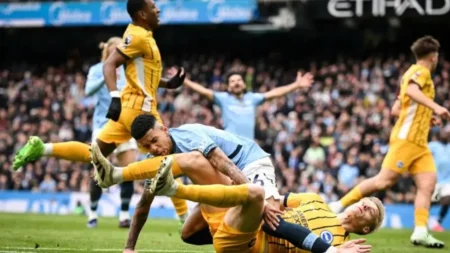
Quique Setién is one of the coaches to have beat Zinedine Zidane’s Real Madrid this season and he is offering Liverpool some expert advise on how to do same in the Champions League final today
This Champions League final is a game that in theory should finish 4-4. It could be very entertaining for the fans, but perhaps not for the coaches. Real Madrid are a team who are a little anarchic. They don’t have a permanent shape: although they will play with four at the back and with Casemiro, Toni Kroos and Luka Modric in the middle, the way they set up from there can change. Cristiano Ronaldo may be through the middle or wider and much depends on his role. If he and Karim Benzema play, it tends to be 4-4-2 but Gareth Bale could start, and/or Isco, Lucas Vázquez or Marco Asensio. All mean different things for the shape.
That anarchic nature is more a general point, though. Madrid’s players are carried along by the football itself, what they feel in each moment; they’re not guided by tactical rigour or a specific structure. What defines Madrid is their individual ability, how they associate with each other intuitively. Look at players like Benzema, who drifts to the wings and combines, or the full-backs, Marcelo and Dani Carvajal: when Carvajal goes up he doesn’t look to see if the other full-back is deep and that open approach often compromises them defensively.
In the middle there’s more control. Liverpool could try to pressure Modric to deny them that, but he has so much ability to carry the ball, overcome difficulties, find passes. His play depends more on team-mates offering options than on the opposition. He and Kroos understand each other well, their positioning and passing is excellent. With Casemiro, they are the only players who maintain a certain order. I’ve very rarely seen Modric lose the ball – he always makes the right decision.
Madrid’s anarchy can make planning difficult: they’re unpredictable. But if you can be defensively sound and use the ball well, making the most of the space they leave, you can do them damage. We’ve seen throughout the season that Madrid concede a lot of chances. And if you can keep the ball, you can reduce their opportunities.
READ: Man City offer £70m for Isco, as Arsenal close in on Chelsea’s Kenedy
We won 1-0 at the Bernabéu but we had much more difficulty then than in the second game, which we lost 5-3. At the Bernabéu we scored in the last minute. We’d been under pressure, although it’s also true that we’d tried to keep possession. We wanted the players to stay calm: have faith, choose passes well, be intelligent, keep it, make them run. We knew that chances would come. And although we had to resist, although the tiredness meant we were sometimes less precise than we wanted, that was what happened.
At the Benito Villamarín we controlled practically the whole game, except for 15 minutes in the second half when they were superior, scored and turned it round. You can’t do anything about the ability Madrid have when they get the ball, combine and attack: they have extraordinary players, capable of creating danger or scoring easily. We talked to the players about the need to keep the ball. Because Madrid’s forwards don’t always press, that facilitated prolonged possession. And if you keep the ball, even if you’re not going to generate much with it, you can take control.
That was how we set it up and that was the way it worked … except that we lost. And that’s the thing. We were 2-1 up at half-time, and should have been further ahead, but they scored three from the 50th minute to the 65th; we then made it 3-4 with five minutes left but they scored again in the 92nd. This is the issue: Madrid have 15 minutes and it’s the perfect storm. There will always be moments when you lose the ball – that’s unavoidable. Against some teams the repercussions aren’t serious. But if Modric gets it, he delivers a wonderful pass … if Bale gets it, with the speed he has … if Cristiano reaches a cross or produces a move … you know they can hurt you, and that was exactly what happened. We had the game perfectly controlled, but you need lots of chances to score; they need far fewer.
Up front Liverpool have extraordinary players. It’s true that their capacity to defend is weaker but they can hurt Madrid because they have fast, intelligent footballers. When Madrid attack they lose shape and Liverpool can harm them. But, of course, Madrid can do Liverpool damage too. These two are better going forward than going backwards.
That said, it’s important to make a point here: in big, important games Madrid tend to be much more rigorous defensively, they’re not as mad; they don’t play with that sense of superiority, as if they know they’ll win. And if they are more solid, Liverpool will struggle more – just as Madrid will struggle to generate opportunities if Liverpool tighten up. But teams don’t change overnight. It’s unlikely Marcelo or Carvajal will stop going forward, that Cristiano, Benzema or Modric will change. Even if you tell them to defend permanently, they won’t. And Liverpool are similar. You’re not going to tell them to just defend. It could be very entertaining.
Interview by Sid Lowe/The Guardian











